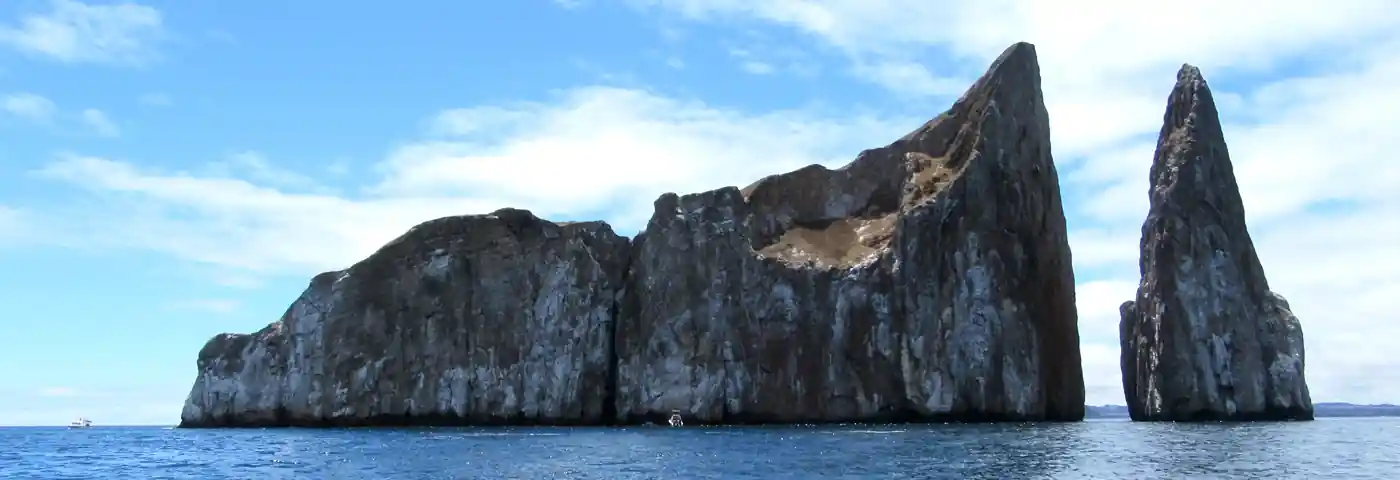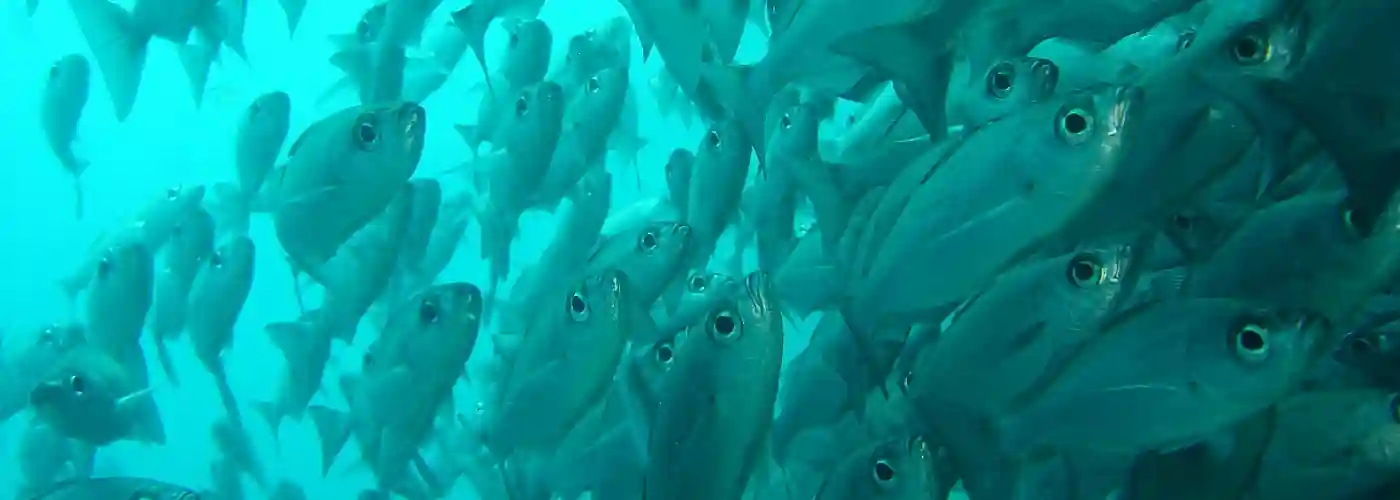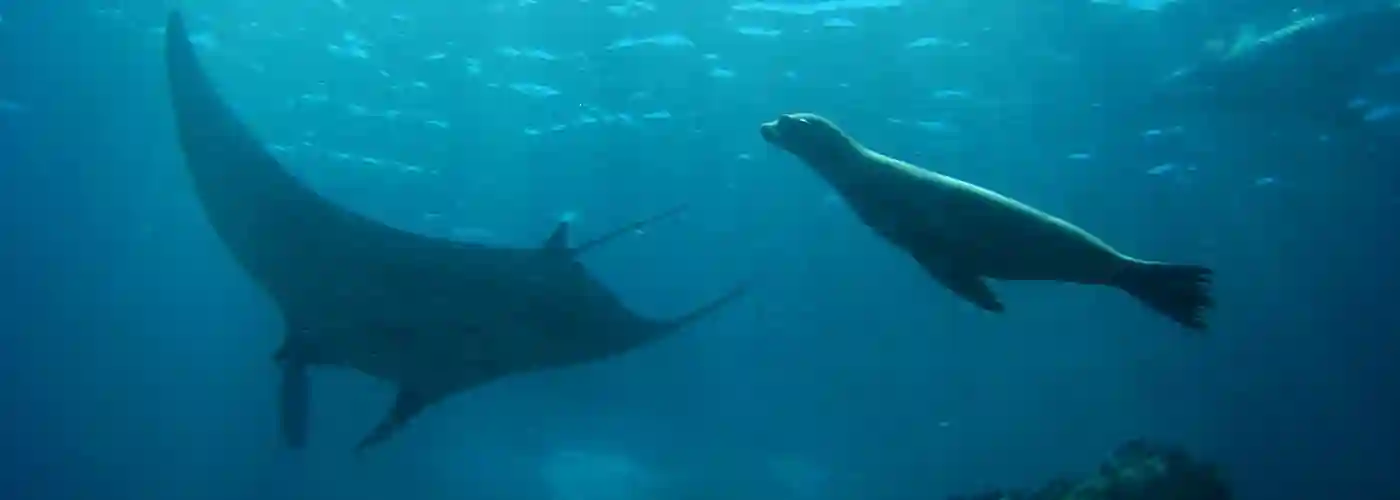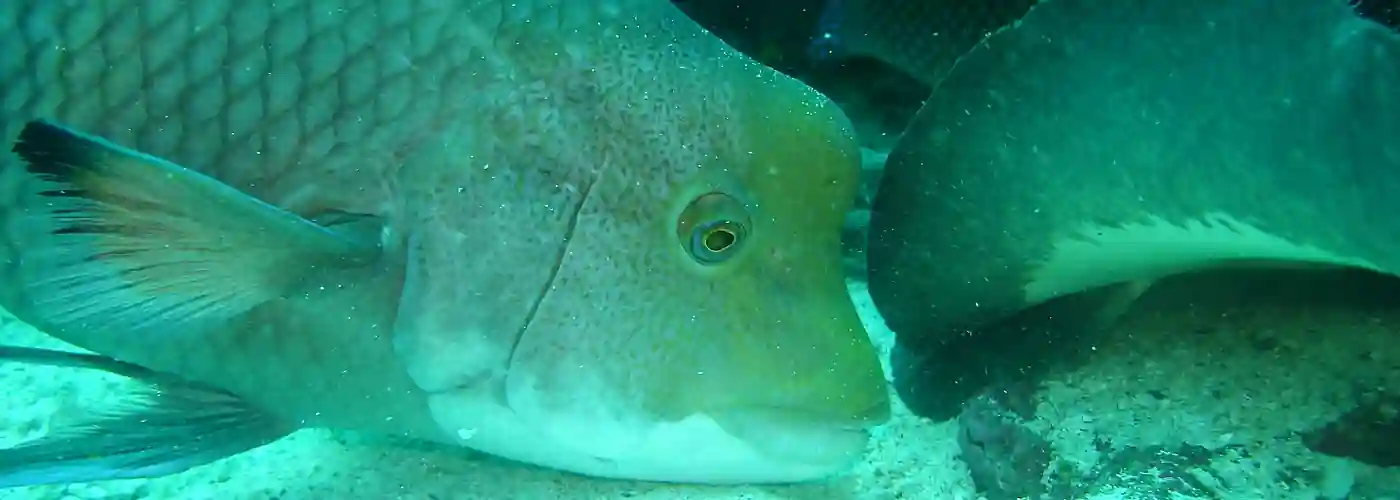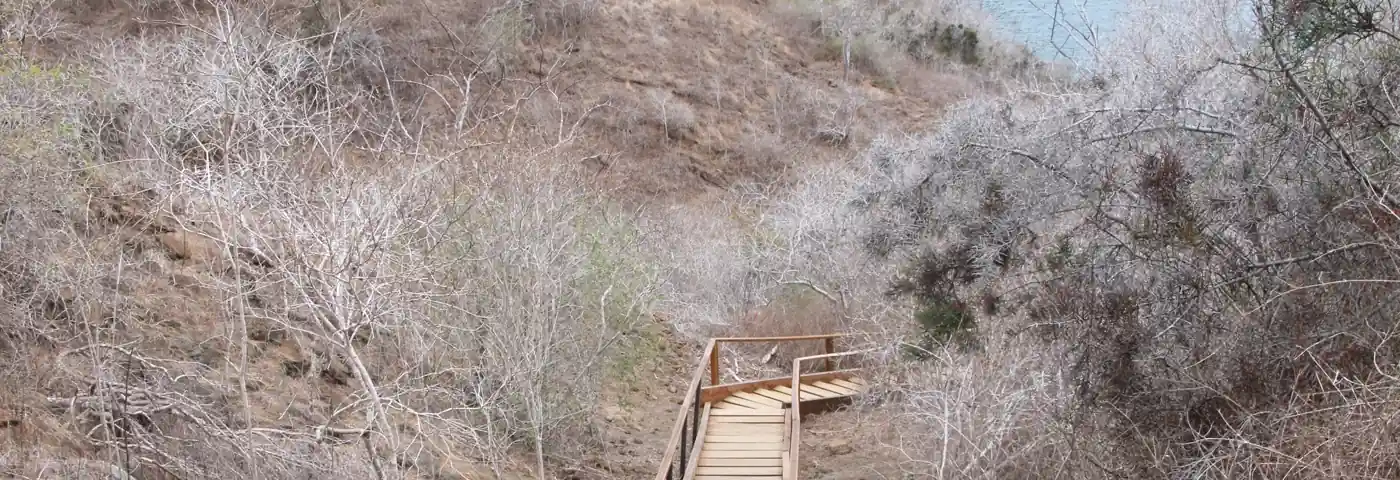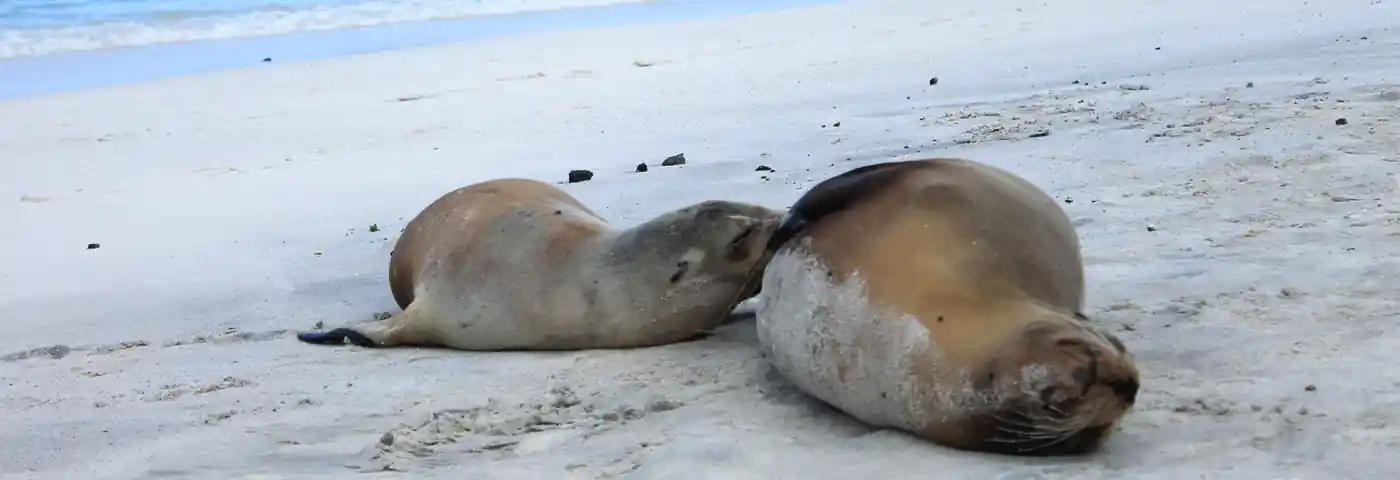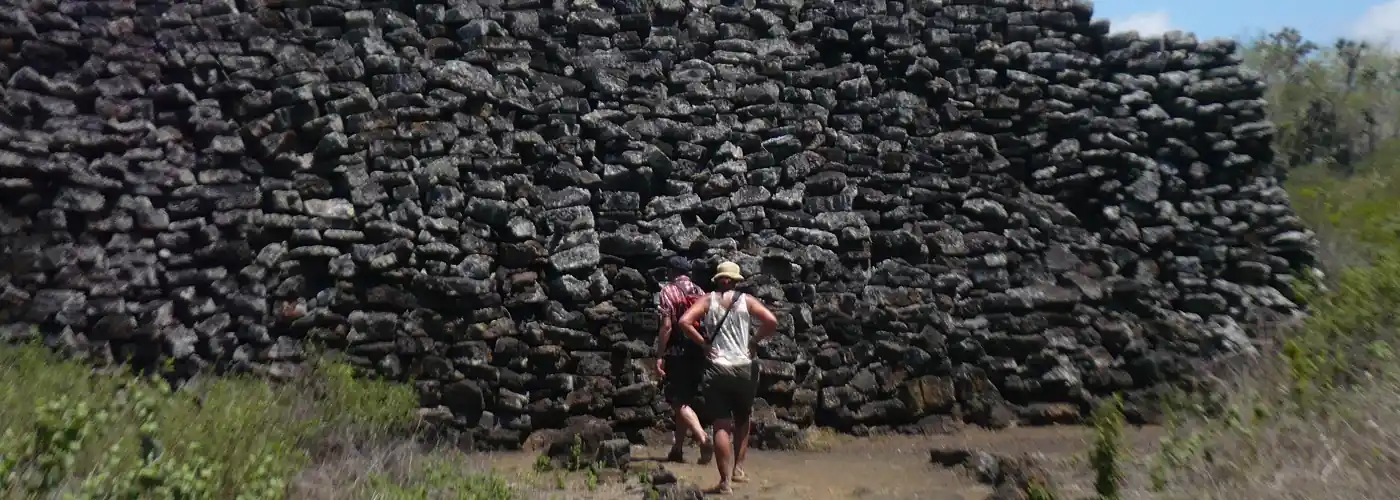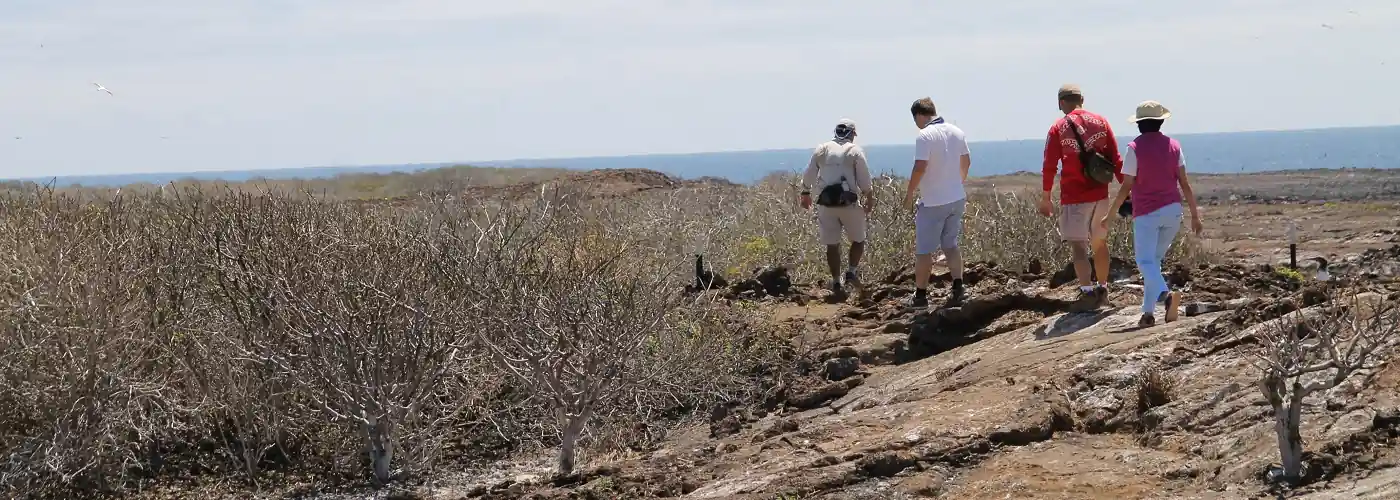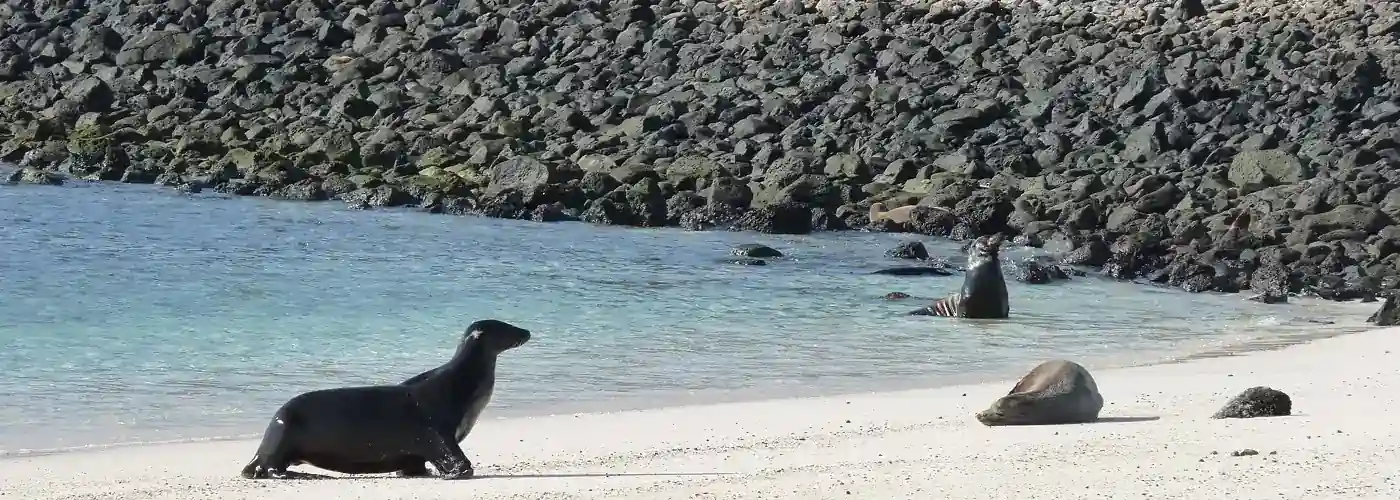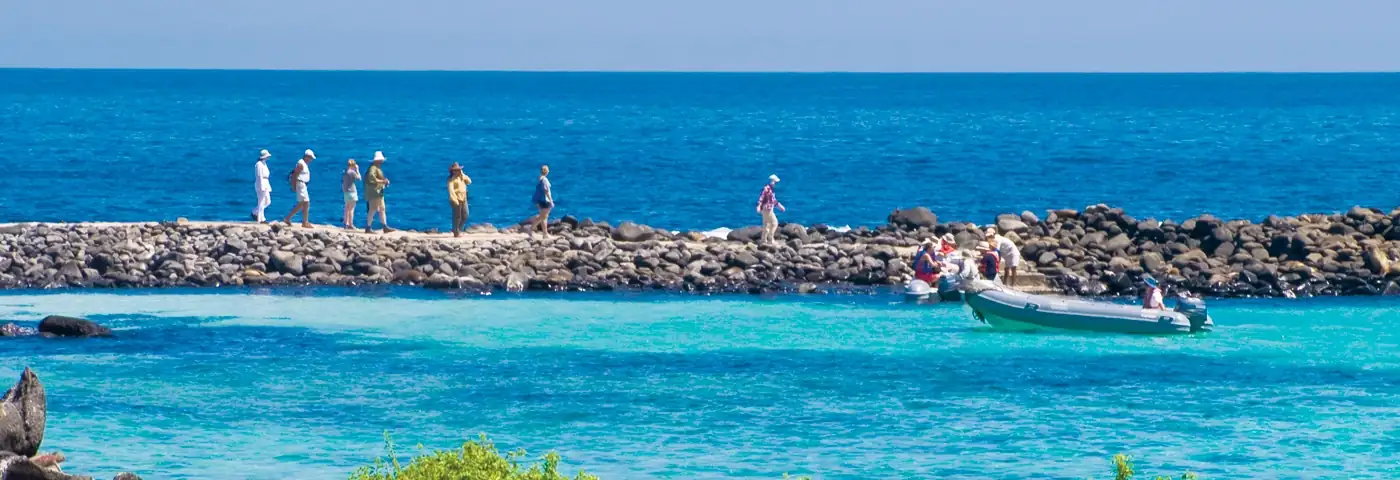8 days cruise yacht Petrel – A8
Route A8: Western and Central Galapagos Islands
- 8 days
- from 2
Highlights of the tour
- Variety of shore birds
- Green turtle nesting site
- Tropical fish
- Impressive lava landscape
Overview
During this 7-night cruise with the luxury yacht Petrel you visit the most important visitor sites of Isabela Island as well as South Plaza island, Santa Fe and enjoy amazing beaches with great snorkeling possibilities and let yourself astonish by the variety of flora and fauna.
On board you can enjoy the luxury facilities, tasty meals, relax in the pool or in your comfortable cabin.
Itinerary
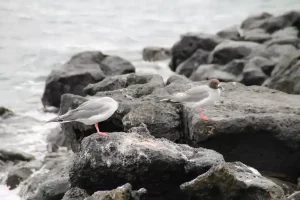
Morning – Arrival at Baltra Airport: At the mainland airport, you have purchased your TCC or Ingala card and a luggage inspection has already been conducted to ensure that no foreign plant or animal species are introduced. Upon your arrival at Seymour Ecological airport, your TCC (Transit Control Card) will be stamped. This must be kept in a safe place during your trip, as it must be presented again on your return flight. In addition, the Galapagos National Park entrance fee is due upon entry (US$200), if not already paid. Your guide will meet you at the airport, help you with your luggage and will accompany you on the short bus ride to the port. Here you will board the yacht. After greeting the crew and captain, you will be assigned your cabins and then have your first lunch together.
Afternoon – North Seymour: This small island is one of the most visited places and is teeming with birds. An easy circular walk takes you through the most extensive colonies of blue-footed boobies and frigatebirds in the archipelago. At the beginning of the breeding season, the adult frigatebirds inflate their bright red pouches into impressive football-sized balloons. This is one of the few places where you can compare the magnificent and the large frigatebirds breeding side by side.
Meals: Lunch/Dinner
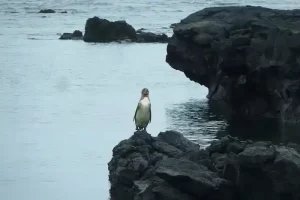
Afternoon – Espinoza Point (Fernandina): Espinoza Point is the only visitor site on land of Fernandina Island and one of the few places where you can find some bizarre outgrowths of natural selection. The flagship species is the flightless cormorant, which lives exclusively on the remote western side of the Galapagos and represents a kind of holy grail of evolution. You will also love the almost alien view of the cone of La Cumbre volcano with its spectacular scenery. The narrow headland you walk along is the end of the lava tongue that reached the coast and solidified due to the contact with the cold sea water.
Meals: Breakfast/Lunch/Dinner
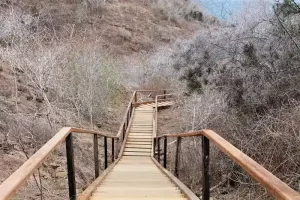
Afternoon – Urbina Bay: Urbina Bay is located on the west coast of Isabela, between Elizabeth Bay and Tagus Cove. It is located near the base of the Alcedo volcano. The coastline underwent a major uplift in 1954, extending the shoreline for a kilometer. Here you can find corals, shells and many other calcareous organisms above water. Urbina Bay is home to the large and colorful land iguanas and giant tortoises of the Vulcan Alcedo population. There are also many Darwin’s finches to be seen.
Meals: Breakfast/Lunch/Dinner
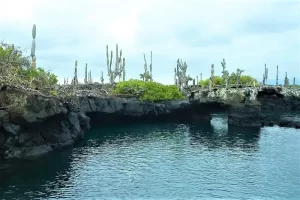
Afternoon – Moreno Point: Punta Moreno is located on the north coast of Isabela Island between the Sierra Negra volcano and the Cerro Azul volcano. The trail leads along the former undulating lava flow Pahoehoe to a complex of coastal lagoons whose main attractions are different species of birds.
Meals: Breakfast/Lunch/Dinner
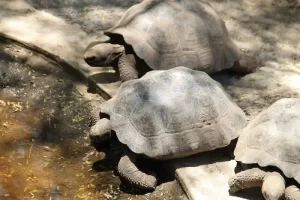
Afternoon – Wetlands, Turtle breeding center: The wetlands of Isabela Island can be found directly in front of Puerto Villamil. They consist of lagoons, marshes and mangrove forests and are home to a wide variety of unique bird species, such as the common stilt, the whimbrel, the Bahama duck and the moorhen. The wetland can be easily explored on foot along a path that winds through the marsh. Back in Puerto Villamil, you visit the Arnaldo Tupiza Turtle Breeding Center. Hundreds of Galapagos giant tortoises can be seen here. The number of giant tortoises on Isabela has declined sharply since the 16th century. The center was established to preserve or save the species.
Meals: Breakfast/Lunch/Dinner
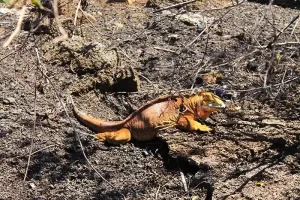
Meals: Breakfast/Lunch/Dinner
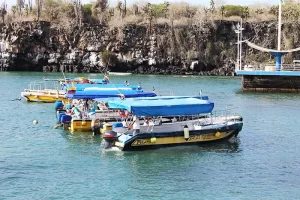
Afternoon – Santa Fe: After lunch, you will be met directly by a Galapagos sea lion colony on the beach, where you will have time for either a refreshing swim or exceptional snorkeling surrounded by tropical reef fishes in the crystal-clear waters of Barrington Bay. In addition, you will see vast opuntia cactus forests. The largest cacti on the island have extremely thick trunks and can grow over 10 meters tall. After a wet landing on Santa Fe beach, take a guided nature walk. This extraordinary island is a remnant of what is probably the oldest volcano in Galapagos. Your guide will decide whether to follow an easy, short walk or a strenuous, longer hike inland (moderately difficult, about 3 km).
Meals: Breakfast/Lunch/Dinner
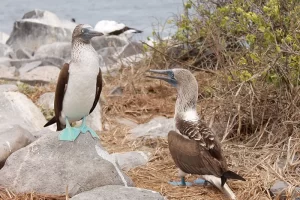
Transfer to San Cristóbal Airport (SCY): Accompanied by your guide and several crew members, rubber boats will bring you and your luggage safely ashore, where you will take a shuttle to the airport for your flight home.
Meals: Breakfast/Lunch
- Included services
- Transfers in the Galapagos: airport/catamaran/airport
- Airport reception and assistance
- Double or single accommodations
- Guided expeditions based on itineraries
- Top bilingual National Park guide (English / Spanish)
- Cruise Service Officer
- Daily briefing of activities
- All meals and snacks
- Soft drinks and juices
- Captain’s welcome and farewell cocktails
- Use of sea kayaks and paddle boards
- Expedition gear
- Yoga mats
- Kettlebells and dumbbells
- Stargazing laser pointer
- Not included services
- International flight and Galapagos flight
- Entrance fee to Galapagos National Park (USD 200 per person, children under the age of 12 USD 100)
- Transit control card (USD 20 per person, subject to change)
- Airport transfers in Galapagos (if the flight is not booked together with the cruise)
- Wetsuit
- Soft and alcoholic drinks
- Tips
- Travel insurance and other personal expenses
Hints
Ask us for children or group discount.
Price not valid for Christmas and New Years´s Eve departures.
All prices are subject to change if local tax increases or other circumstances beyond our control occur.
The itinerary is subject to change at any time due to circumstances beyond our control.
In order to rent a wetsuit, we will need your clothing size (S/M/L/XL) before your arrival in Galapagos. Standard wetsuits with a thickness of 3 mm are rented.
Travel Insurance:
To protect your travel investment, we highly recommend the purchase of travel insurance. Travel insurance is intended to cover medical expenses, trip interruption and cancellation, theft and other losses incurred while traveling domestically or internationally.
Visa and Entry Requirements:
Ecuador requires a valid passport (with a minimum 6 months validity). Contact your local embassy or consulate for the most up-to-date visa requirements.
8 days cruise yacht Petrel – A8
Get in touch:

Dayana Arias Leon
- +593 (0)2 2194333
- hello@soleq.travel
Other interesting cruises
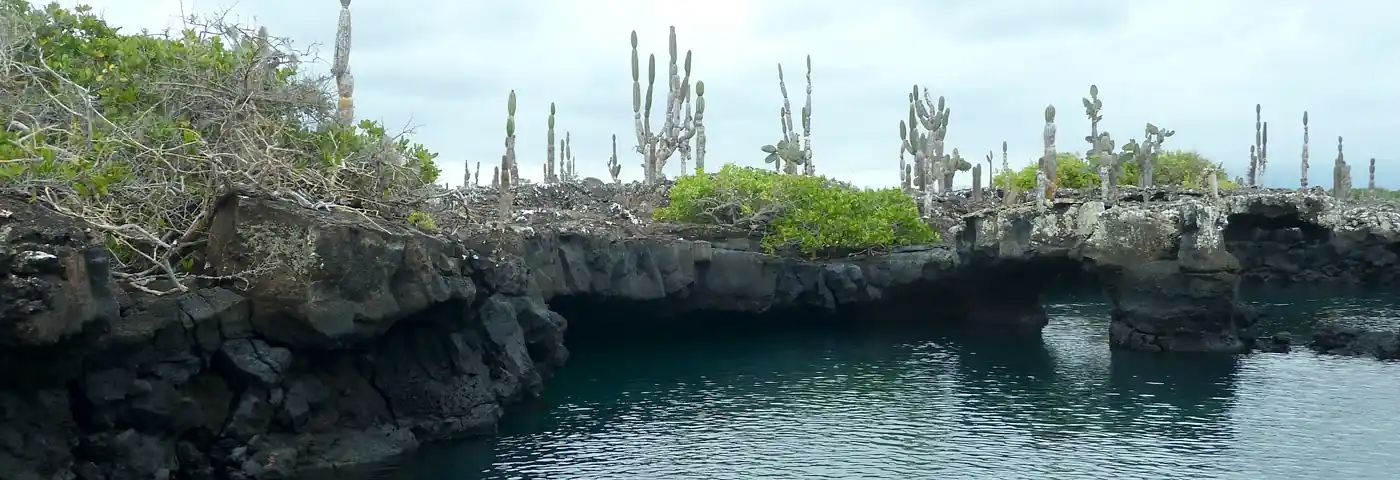
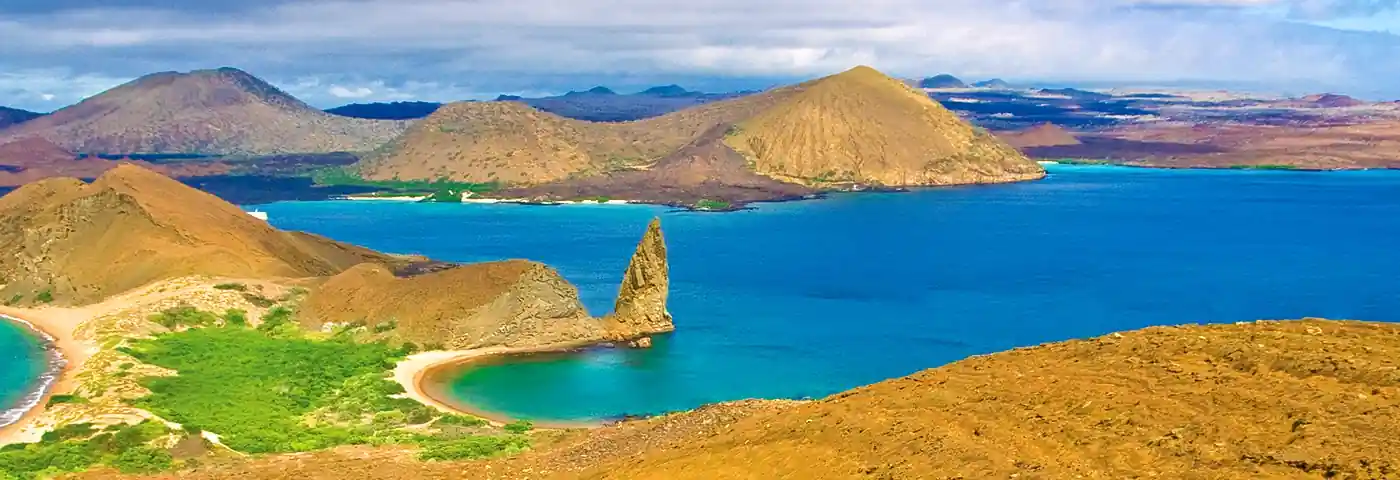
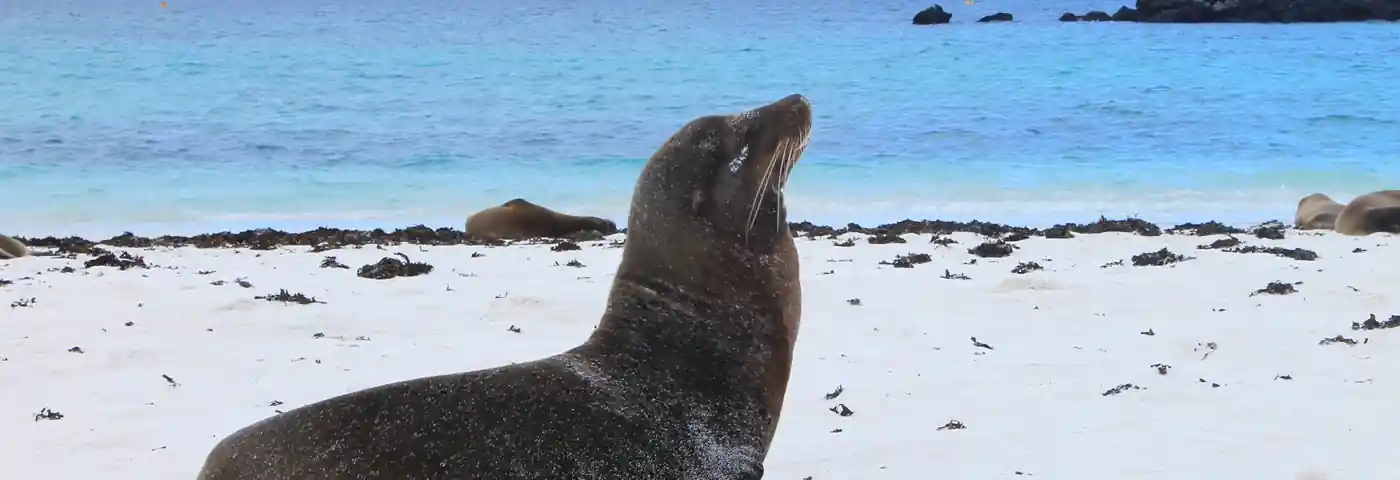
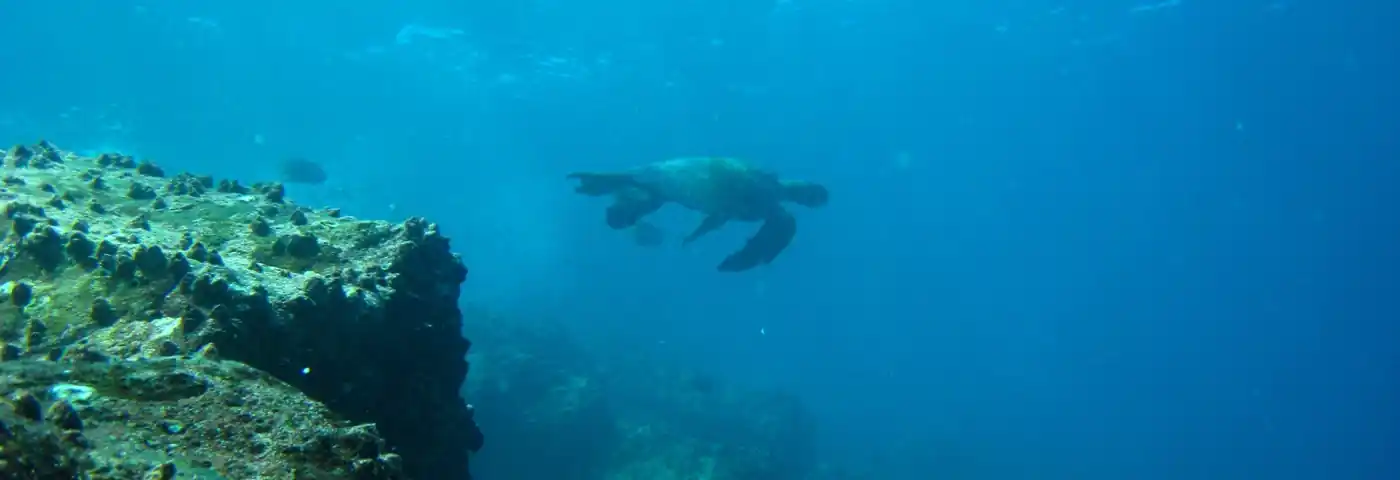

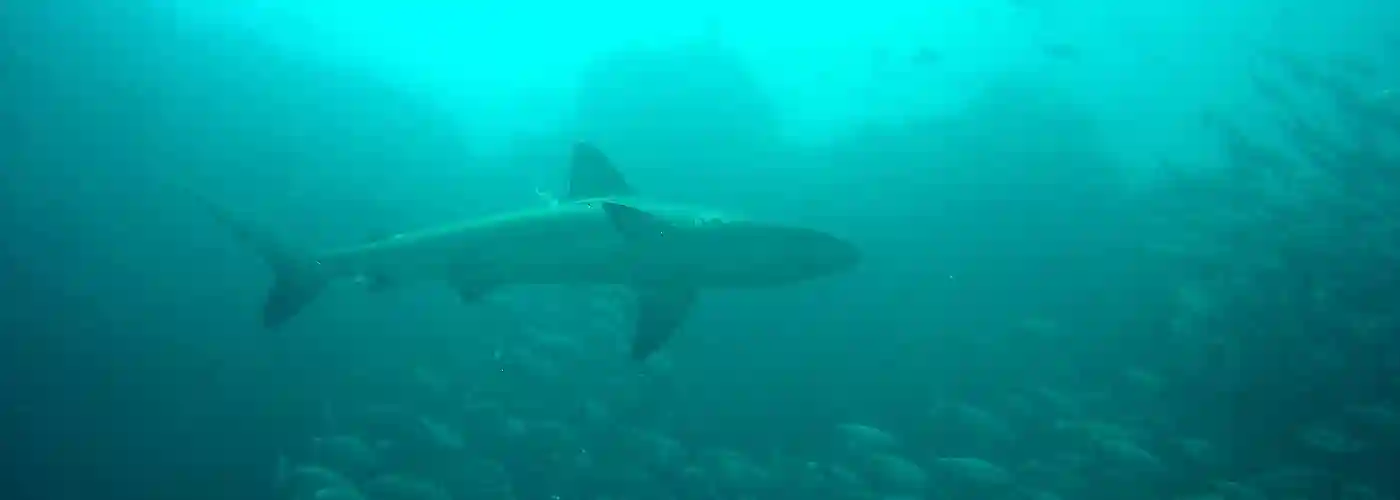
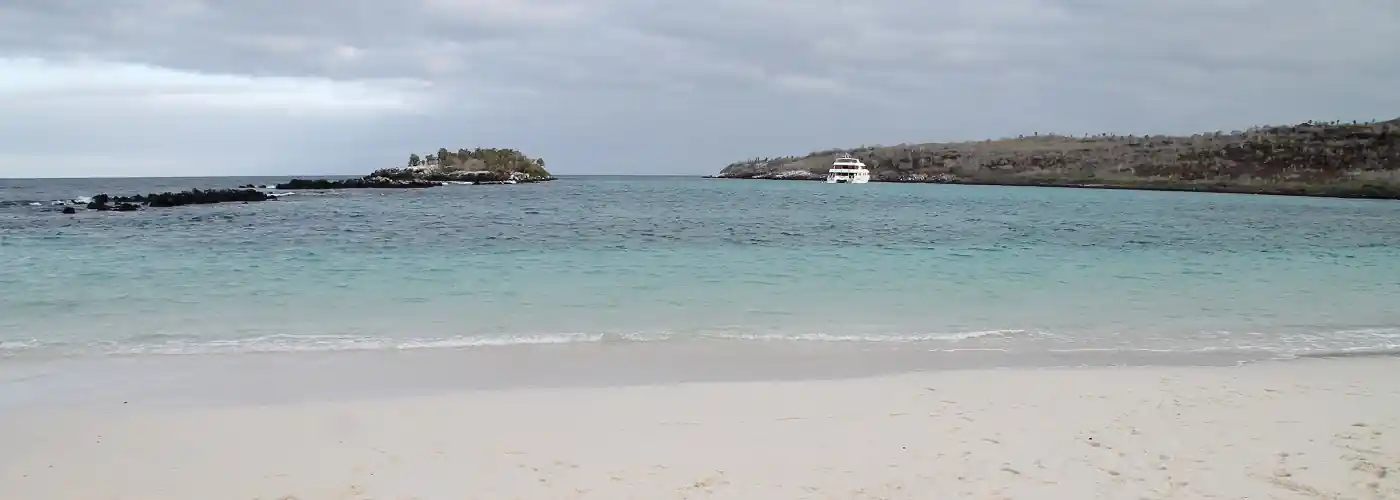
- 8 days
